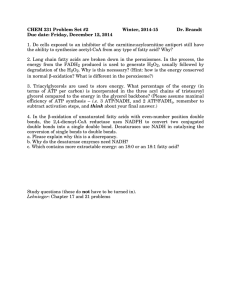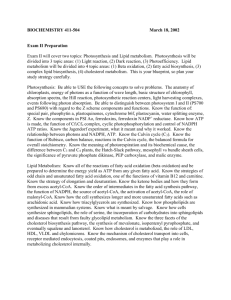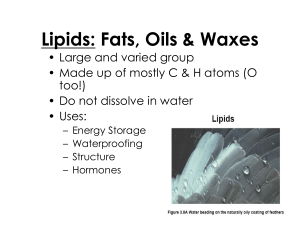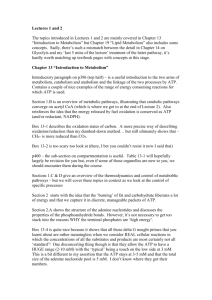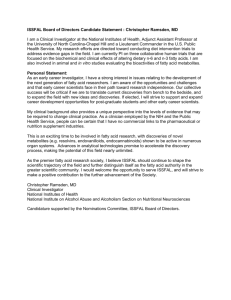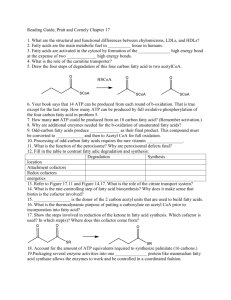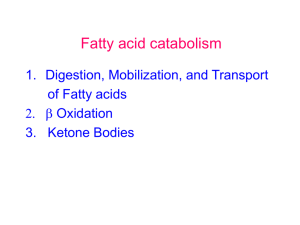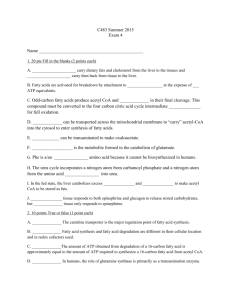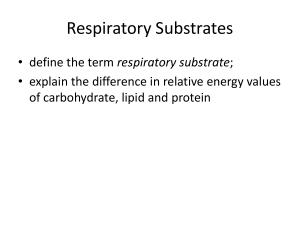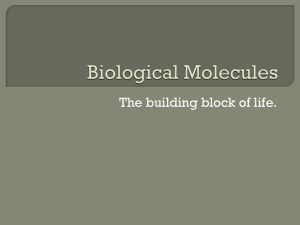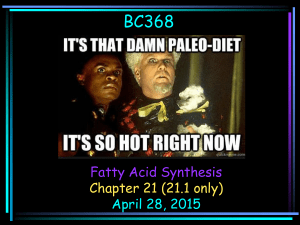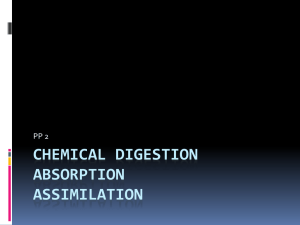Fundamentals of Biochemistry 3/e
advertisement
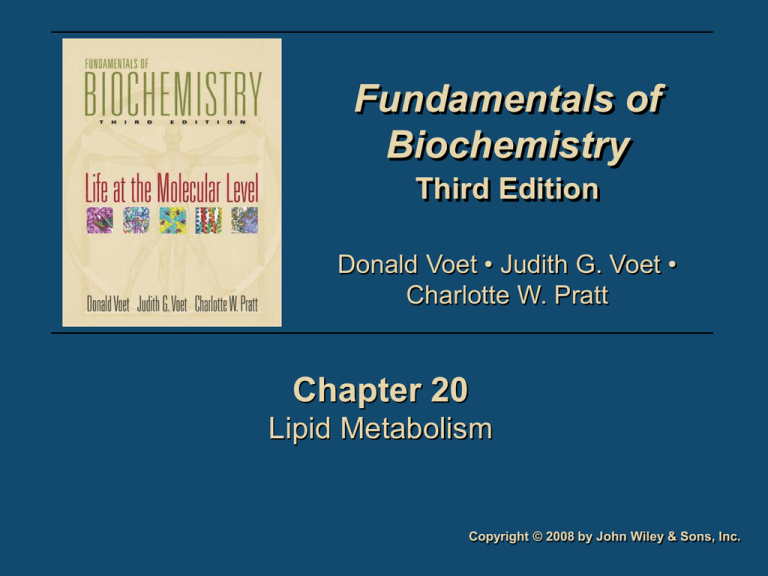
Fundamentals of Biochemistry Third Edition Donald Voet • Judith G. Voet • Charlotte W. Pratt Chapter 20 Lipid Metabolism Copyright © 2008 by John Wiley & Sons, Inc. Triglycerides Major fuel source in humans Digestion occurs at lipid-water interfaces Lipases and fatty acid binding proteins aide in absorption and digestion of triglycerides Fatty acids are still insoluble and are transported by lipoprotein complexes Chylomicrons – intestinal synthesized, dietary lipids VLDL, IDL, LDL – liver synthesized, endogenous transport from liver HDL – transport cholesterol back to liver Lipid Transport Receptor Mediated Endocytosis of LDL Fatty Acid Activation • Fatty acids are transported via serum albumin • Coenzyme A must be attached to the fatty acid before it can be oxidized The activated fatty acid must be transported across the mitochondrial membrane Saturated Fatty Acids Highly Exergonic B-oxidation makes: FADH2; NADH; and acetyl-CoA Acetyl-CoA makes: FADH2; 3 NADH; 1 GTP C16 would be 7 rounds & 8 acetyl-CoA 15 FADH2 (1.5) = 22.5 ATP 31 NADH (2.5) = 77.5 ATP 8 GTP = 8 GTP Total = 108 ATP Used to for priming = 106 ATP Glucose = 180 g/mol @ 32 ATP = 0.18 ATP/g C16 = 256 g/mol @ 106 ATP = 0.41 ATP/g Unsaturated Fatty Acids Odd chain fatty acids end in propionyl-CoA, which is converted to Succinyl-CoA for TCA Synthesis or breakdown of ketone bodies Synthesis or breakdown of ketone bodies Must get acetyl groups out of the mitochondria First Committed Step of Fatty Acid Biosynthesis Synthesis requires a carrier Synthesis of Palmitate uses: 8 Acetyl-CoA 14 NADPH 7 ATP Completely saturated fatty acid Fatty acids can be elongated Desaturases make unsaturated fatty acids Synthesis of triglycerides Figure 20-31
